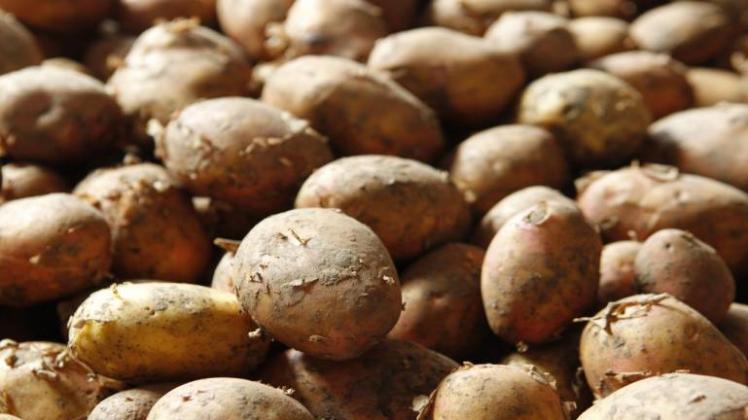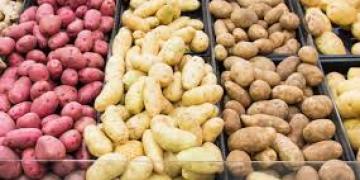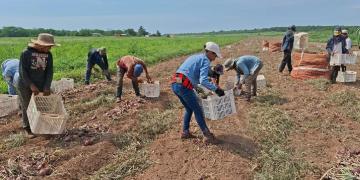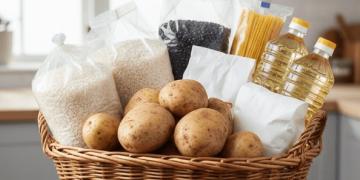India: Snack Wars , Pepsi vs farmers: Whose potato is it anyway?
The PepsiCo case has lessons for other companies that depend on a similar method of contract farming and try to enforce their exclusivity. On the flip side, this could be a blow to corporate efforts to improve productivity in the Indian farm sector.

On May 6, the local arm of American food and beverages company PepsiCo Inc. said it will withdraw its case against local farmers in Gujarat over intellectual property rights infringement. PepsiCo had alleged that the local farmers in Gujarat have been cultivating a specific variety of potato (FL 2027), without permission, which was developed by PepsiCo for its Lay’s potato chips.
PepsiCo has contract farming arrangements with farmers across the country for potato cultivation. The American firm buys back the potato --with lower moisture content suited for crispier wafers -- directly from these farmers. PepsiCo’s case was against Fulchandbhai Kachchawa, who along with his brother Surershbhai Kachchawa, runs a cold storage chain. Incidentally, Kachchawa brothers have major stakes in local firms, including Tirupati Balaji Chips Potato which is the country’s second largest potato chips maker.
That specifically is the reason why PepsiCo filed the case. During the past few years, Balaji has eaten up PepsiCo’s shares in the potato chips market in western India, especially in Gujarat, where the local firm has become the market leader. According to data compiled by Euromonitor International, the market share of PepsiCo’s flagship snacks brand Lay’s almost halved to 4.4 percent in 2017, from more than 8 percent (retail value) of India’s savoury snacks segment in 2013.
If PepsiCo’s claims are to be believed, Balaji’s popularity comes from the very fact that it uses the same potato as PepsiCo. Now, the question is does PepsiCo own the FL 2027 variety of potato?
According to The Protection of Plant varieties and Farmers’ Rights Act, 2001, which protects the rights of Indian farmers, “a farmer shall be deemed to be entitled to save, use, sow, re-sow, exchange, share or sell his farm produce including seed of a variety protected under this Act in the same manner as he was entitled before the coming into force of this Act: Provided that the farmer shall not be entitled to sell the branded seed of a variety protected under this Act.”
That means that the regulations permit the Kachchawa brothers to sell potato seeds, or potatoes, to Balaji, if they are unbranded.
This, however, is not the case globally. The International Intellectual Property regulations ensure that breeders (of plants or seeds) have sole rights over the varieties they develop, disregarding rights of farmers. Some countries prohibits saving, re-using and selling seeds by farmers to stop replication of seeds, while some countries have specific norms that prohibit companies from having exclusive control to reduce monopoly.
Still, PepsiCo’s probably did not back track from litigation because of its seemingly weak legal standing (a verdict in this case would have set the precedent for the applicability of the farmer’s rights law). PepsiCo likely withdrew the suit because of social and political pressures. Besides non-government farmers’ welfare associations, both the ruling Bharatiya Janata Party and opposition Congress raised their voices hoping to encash on farmers’ sentiments during the elections. Simply put, PepsiCo picked up a wrong time to file this case.
By agreeing to withdraw the litigation, PepsiCo did not just lose one case. It might have just lost its grip over 10,000 Indian contract farmers who have been producing potato for the American company. This episode has lessons for other companies that depend on a similar method of contract farming and try to enforce their exclusivity.
On the flip side, this could be a blow to corporate efforts to improve productivity in the Indian farm sector as well. Indian farmers could also possibility lose out on access to new, improved varieties of seeds as an outcome of this case.
Interestingly, two of PepsiCo’s rivals, ITC and Coca-Cola, have a different way of working with farmers. According to these two companies, none of them are into contract farming arrangements. ITC, which sells potato chips, has developed a specific variety of potato for making chips. But, according to ITC, farmers are free to sell their produce to anyone and ITC is just one of the buyers. Both Coca-Cola and ITC claim to work with farmers to help them increase yield.
Will PepsiCo now look at a different model to ensure raw material supplies? Only time will tell.
Fuente: https://www.moneycontrol.com/news/business/companies/snack-wars-pepsi-vs-farmers-whose-potato-is-it-anyway-3947851.html




